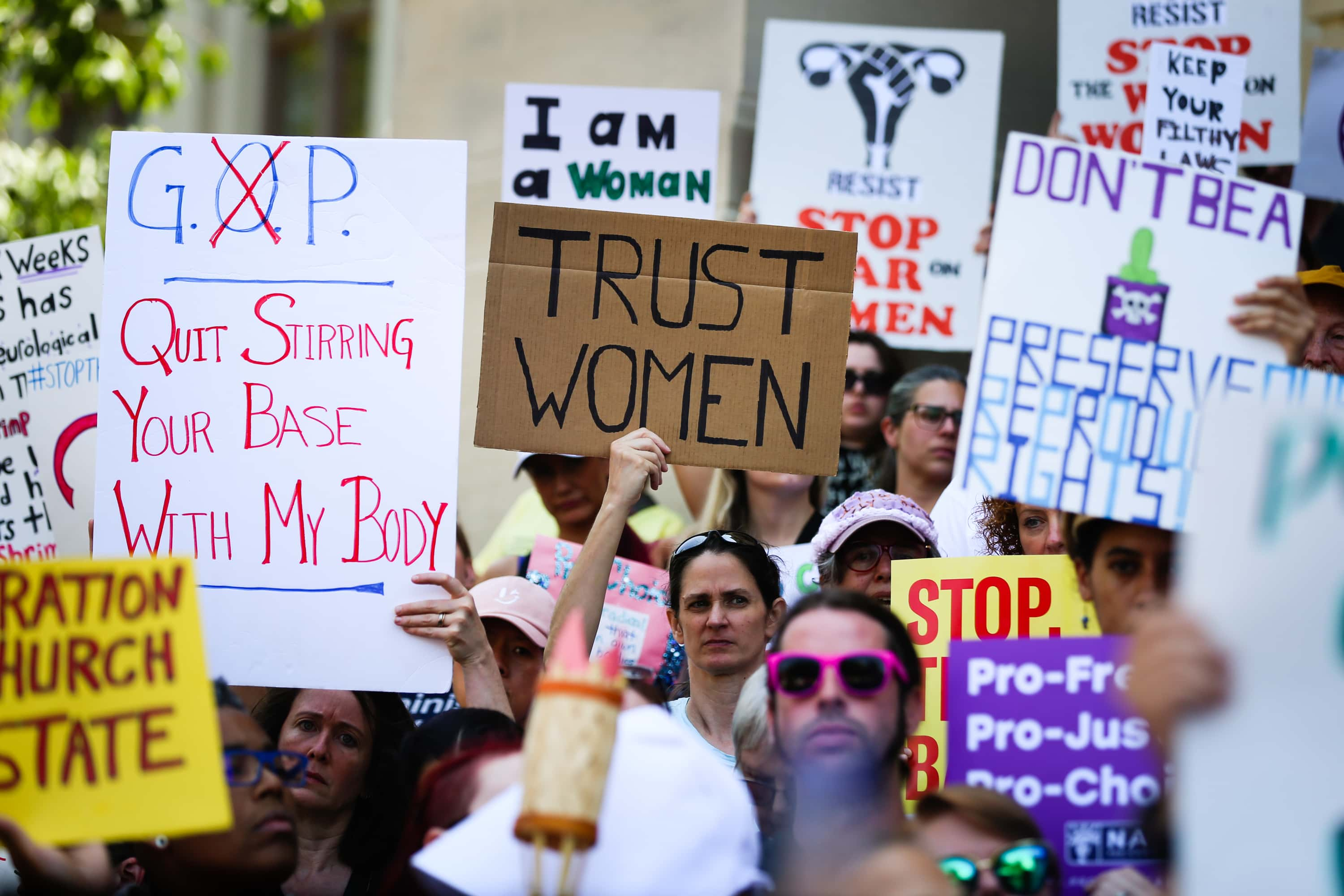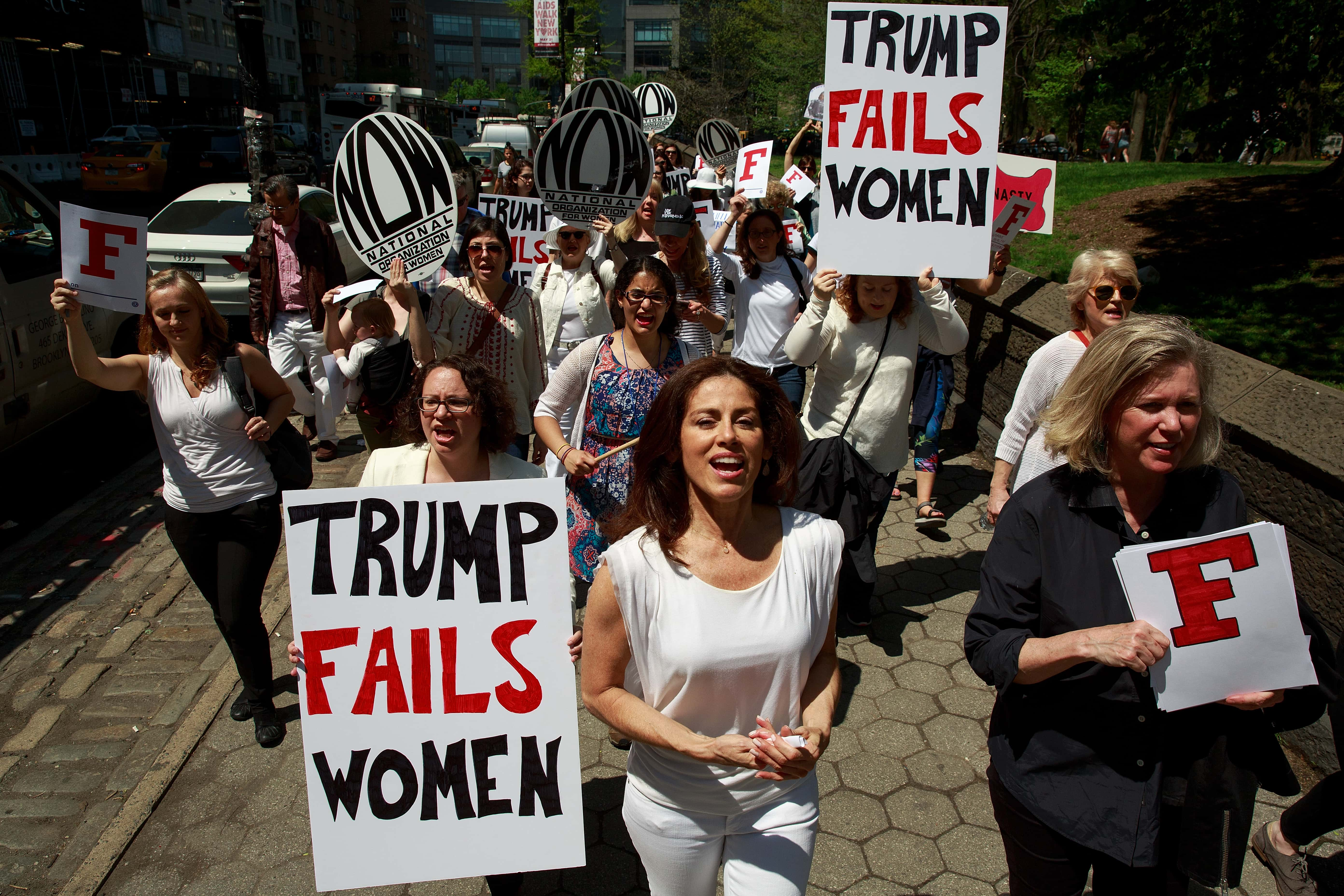Violence Against Women: Trump's rhetoric and sexist policies contradict his claim of 'great respect'

Violence against women is a global issue and one that has been ongoing for centuries. In the 21st century, there is more awareness, yet, every year 66,000 women are violently killed globally, accounting for approximately 17% of all victims of intentional homicides. MEA WorldWide's (MEAWW) Violence Against Women campaign will examine different aspects of the issue and society's role in addressing it.
In July 2020, the #BlackAndWhiteChallenge took over social media as women across the world put up black and white selfies to signify women supporting women. It was not until after the challenge went viral that many began to learn the significance behind the challenge which was focused on femicide in Turkey. While the challenge did not originate to commemorate the women who were killed in Turkey, many began to associate #ChallengeAccepted with the rising number of women killed in Turkey in the aftermath of the implementation of lockdown measures.
According to the United Nations, it is estimated that 35% of women worldwide have experienced either physical and/or sexual intimate partner violence or sexual violence by a non-partner (not including sexual harassment) at some point in their lives. Of the 87,000 women who were intentionally killed in 2017 globally, more than half (50,000 or 58%) were killed by intimate partners or family members, meaning that 137 women across the world are killed by a member of their own family every day. More than a third (30,000) of the women intentionally killed in 2017 were killed by their current or former intimate partner.
In the United States, even before Trump was elected the 45th President of the country, many called him out for his misogynist rhetorics. Who can forget the Access Hollywood tape where Trump was heard saying, "I don't even wait and when you're a star, they let you do it. You can do anything. ... Grab them by the pussy. You can do anything." After the tape was released, he said, "I have great respect for women. Nobody has more respect for women than I do." However, Trump's proclamation of "great respect" is not one that is reflected in his administration's policies.

The most obvious of this is the administration's attitude towards women's healthcare, especially abortion rights. In 2017, Trump signed a bill to overturn Obama-era protections that prevented Title X funding being withheld from medical providers for reasons other than poor performance or non-compliance -- which meant that providers that offer abortion with nonfederal funds, including Planned Parenthood could be denied funding. Trump also reinstated and expanded the Global Gag Rule as one of his first actions as president, which prevented recipients of US foreign aid from offering any information, referrals, services, or advocacy regarding abortion care.
However, Trump's attack on women's rights goes much beyond healthcare and attacks the equal rights of women in other ways too. Reuters reported in 2018 that the pay gap fared much worse under Trump, with women making roughly half the income of men in a 15-year period, accounting for time off for family care. During his term, Trump revoked protections against workplace sexual harassment, sexual assault, discrimination and pay disparities. He also rescinded Obama-era campus sexual assault guidelines, which required colleges to take allegations more seriously and hold perpetrators accountable and narrowed the definition of sexual harassment.

Even Trump's policies that target the environment are harmful. By rolling back many environmental protections, Trump actively denies climate change claims and the dangers it poses. Climate change is not gender-neutral. In almost all societies, the harmful effects of climate change will impact women and vulnerable communities more.
The administration is also currently working to repeal an executive order made by Obama that forces large companies of 100 employees or more to report the wages they pay their employees. Under the executive order, these companies have to submit data to the Equal Employment Opportunity Commission every year that shows their workers' income based on race and gender. Companies already keep this data, but they have to disclose the information under the rule so the gender income gap can be accurately recorded. In 2017, Trump quietly reversed the ruling made by the former president and blocked income data collection for companies because he believed it was “unnecessarily burdensome” on the companies.
Under the Trump administration, the US Department of State also stripped its annual human rights report from featuring any mentions of reproductive or sexual rights. Other governmental agencies and websites followed suit by removing similar mentions on their own page, like the Department of Health and Human Services (HHS) deleting lesbian and bisexual women’s resources from its women’s health website. The HHS also removed mentions of contraception, abortion, and sex education from its documents.
If anything you read here makes you want to talk to someone, call 1-800-799-SAFE (7233). Individuals who are Deaf or hard of hearing may use TTY 1-800-787-3224. Additionally, advocates who are Deaf are available 24/7 through the National Deaf Hotline by video phone at 1-855-812-1001, Instant Messenger (DeafHotline), or email (nationaldeafhotline@adwas.org). If it's not safe for you to call, you can use a live chat service here.










